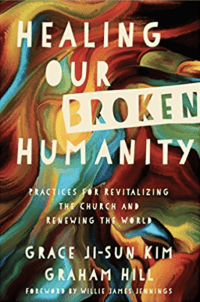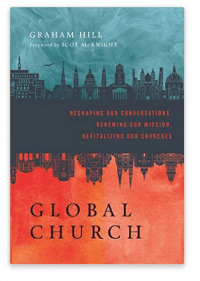9 ways to amplify the voices & honor the gifts of women

See also “6 ways to empower and release more female leaders”
A female Christian friend recently asked me to watch a TED talk with Alaa Murabit. I was moved by the talk, and struck by how similar Alaa’s experience is to many Christian women.
Alaa Murabit is a young woman who holds a strong and reflective Islamic faith. But she challenges the way some Muslim men and societies use Islam to keep women silent, and to severely limit women’s rights, independence, leadership, and contributions. Alaa is committed to elevating and profiling the voices of Muslim women. In her speaking and writing, she offers many examples of female leaders across the history of her faith – strong, gifted, remarkable women, who left a lasting impact.
I’m not interested in a debate with or among Christians about how Islam impacts women. That’s a discussion for another day. If you choose to respond to this piece, then please don’t go there. That’s not the point of this blog. The point is to invite each of us to look at our own faith tradition, and ask how we can invite women to the table. The point is to invite Christians to amplify the voices and honor the contributions of women.
Alaa Murabit’s experience is similar to the stories of many Christian women. Over and over again I’ve heard Christian women express the same frustrations. They feel ignored by their churches and leaders. They feel their contributions and gifts are devalued. They feel their rights are limited. They feel their voices are silenced. They feel they are called to lead, but are unable to do so. They find many examples of female leaders across the history of their Christian faith and ask why they shouldn’t be able to similarly lead? Is this the result of Christian doctrine and Scriptures? Or is something else going on among Christian communities that is limiting female leadership?
Religion can damage, oppress, silence, and ignore women. But faith communities can also honor, elevate, value, celebrate, listen to, and respect women.
Alaa Murabit challenges us to embrace the idea of women “being at the table.” It’s such an important concept. As Christians, we need “women at the table” in our churches and organizations. Otherwise, we lose so much, make women feel insignificant and valueless, and encourage women to question or abandon their faith. Why are religious institutions so dominated by men, and especially their egos and insecurities? We can’t build strong, deep, diverse, Spirit-led communities without women at the table.
Religions have an important role to play in amplifying the voices of women. For too long, our Western cultures have focused on the role of economic and political powers to liberate women. But given the importance of religion in so many people’s lives, we’ll never see women fully honored and released until we address the role that religion has to play in magnifying the voices and valuing the contributions of women. How can women have rights, or feel welcomed and honored and embraced, without a seat at the religious table?
We need an alternative narrative; one that welcomes women at the table. These women help challenge our distorted and dysfunctional gendered roles, religious systems, and discriminatory messaging.
Dorothy Sayers once observed that when women met Jesus, they met a Man like no other. And they choose to follow him, and shape a church that reflects his welcome, hospitality, love, and equality.
“Perhaps it is no wonder that the women were first at the Cradle and last at the Cross.
They had never known a man like this Man – there never has been such another. A prophet and teacher who never nagged at them, never flattered or coaxed or patronized; who never made arch jokes about them, never treated them either as “The women, God help us!” or “The ladies, God bless them!”; who rebuked without querulousness and praised without condescension; who took their questions and arguments seriously; who never mapped out their sphere for them, never urged them to be feminine or jeered at them for being female; who had no axe to grind and no uneasy male dignity to defend; who took them as he found them and was completely unself-conscious.
There is no act, no sermon, no parable in the whole Gospel that borrows its pungency from female perversity; nobody could possibly guess from the words and deeds of Jesus that there was anything “funny” about woman’s nature.”
Jesus honored and welcomed women. He invited them to join with him in forming a new spiritual family. He invited them to carry his message and vision, embodying his love and welcome and peacemaking. He invited them to join with him in his mission. He honored and welcomed women fully.
[bctt tweet=”9 ways to amplify the voices & honor the gifts of women.” username=”GrahamJGHill”]
Here are nine ways to welcome women to the table.
1. SEEK OUT FEMALE FRIENDS
If you’re a man, seek out female friends. How many close female friends do you have? How can you know what women feel and experience unless you have female friends? If you are married, one of those friends will be your spouse. By why stop there? Many women want safe, mature, respectful men as spiritual friends. I think it’s vital that men have a wide range of close male friends AND close female friends.
2. STOP TALKING AND START LISTENING
Again, if you’re a man, stop talking and start listening to women. What are they saying to you, and to your behavior, attitudes, church, and postures? Listen to the voices and concerns of women. How do they feel about what’s been going on? How have they experienced marginalization, neglect, and discrimination? What visions do they have for the healing and transformation of families, churches, and societies? What leadership gifts do they have, which they’re yearning to use?
3. HONOR “ORDINARY” WOMEN
Honor, listen to, and celebrate “ordinary” women. Sometimes I fear that we honor and profile only a certain kind of strong or forceful woman. But what about the voices of ordinary women? What is God saying to us through those voices?
4. EXAMINE YOUR BELIEFS AND PRACTICES
Ask questions about how you are using Scripture and religious traditions. Examine your beliefs and practices. Are these limiting women’s rights, views, and ability to lead? Or are these honoring and valuing and elevating women – inviting them to the table as equals who are fully able to use all the gifts and abilities that God has given them?
5. EMBRACE RECIPROCAL MENTORING
Embrace “reciprocal mentoring.” I think that male leaders should often be paired with established and emerging female leaders, in a relationship of reciprocal mentoring. The goals are to learn from each other, to break down unconscious bias, to enrich churches and organizations, and to flip our traditional ideas of mentoring on their head.
6. GET PROACTIVE ABOUT WOMEN SPEAKERS
Ensure that women are speaking at your church services and at your events. Make introductions to conference organizers, once or twice a year. Don’t just make sure that women are involved in speaking at conferences and panels – also ensure they are planning those events. Make sure they are serving in positions of power, and have equal access to attending the conference and building dynamic networks. Get proactive. Look for female speakers at seminaries and local churches, and make a commitment to having them speak at your church, college, or event. Without a real commitment, and measurable goals, no change will happen.
7. ASK WHAT YOU’RE WILLING TO GIVE UP (AND GAIN!)
If you’re a male conference speaker, it’s time to process if you are willing to make the sacrifice of losing / sharing your spot for the sake of the church hearing a female voice (there’s always a danger when such change begins, that we indulge in self protectionism). If you’re a male pastor, it’s time to speak at your church less, and encourage women to speak more. The church is much richer for that.
8. PROFILE FEMALE CHRISTIAN LEADERS
Talk about female Christian leaders. Ensure that your congregation, family, and college class learn about the stories of contemporary and historical female leaders. Read books written by women. Listen to talks delivered by women. Look for histories that elevate women. Profile the stories of women in leadership, and of women pursing discipleship and faith in everyday life.
9. PRAY WITH WOMEN
We are close to the people we pray with. We hear each other when we pray with each other with an open and attentive heart. Have you ever noticed that if you listen deeply to someone’s prayers, you hear their desires, fears, viewpoint, hopes, and more? When we pray with others we invite them – and the Spirit in them – to speak into our lives and point us to Jesus.
THINGS YOU CAN DO, RIGHT NOW
Befriend her.
Listen to her.
Learn from her.
Honor her.
Mentor with her.
Promote her.
Sponsor her.
Recognize her.
Choose equality with her.
Submit to her.
Give things up for her.
Make space for her.
Profile her.
Quote her.
Pay her.
Seek justice with her.
Pray with her.
Celebrate her.
Encourage her.
Respect her.
Show her the respect and honor she deserves, and let her do the same for you. [1]
A PRAYER
“We are sorry for the ways we have limited women’s freedoms, rights, independence, and voices. Our churches and lives have been poorer for it. We commit today to doing all we can to honor, elevate, value, celebrate, listen to, and respect women. We make a decision to invite women to the table, as equal partners in faith and leadership and life.”
See also
An apology to victims of domestic violence in the church
6 ways to empower and release more female leaders
#MeToo – Stop asking women & girls to fix the problem! Men, #MeToo is on us
9 ways to amplify the voices & honor the gifts of women
Churches and their leaders must confront domestic violence
Women are the heartbeat of living faith
It’s Time to Stop Organizing All White Male Panels and Conferences
7 inspiring women: A 7-part series on inspiring female Christian leaders and thinkers
Graham Hill
Graham Hill (PhD) teaches pastoral studies and applied theology at Morling College in Sydney, Australia. He is the Founding Director of The GlobalChurch Project – www.theglobalchurchproject.com. Graham has written 6 books. His latest three books are “GlobalChurch: Reshaping Our Conversations, Renewing Our Mission, Revitalizing Our Churches” (InterVarsity Press, 2016), “Salt, Light, and a City, Second Edition: Ecclesiology for the Global Missional Community: Volume 1, Western Voices” (Cascade, 2017), and a co-authored book with Grace Ji-Sun Kim called “Healing Our Broken Humanity: Practices for Revitalizing the Church and Renewing the World” (InterVarsity Press, 2018)
© 2016 All rights reserved. Copying and republishing this article on other Web sites, or in any other place, without written permission is prohibited.
[1] Dr Yemi MD (@DrYemiMD) posted this list on Twitter on 30 Nov 2018:
Invite her.
Cite her.
Recommend her.
Stand with her.
Quote her.
Sponsor her.
Recognize her.
Value her.
Promote her.
Pay her.
Books
Don’t forget to buy Graham Hill’s books:
- Healing Our Broken Humanity
- Global Church
- Salt, Light, and a City (second edition)



CONNECT WITH US
FOLLOW US ON SOCIAL NETWORKS






0 Comments